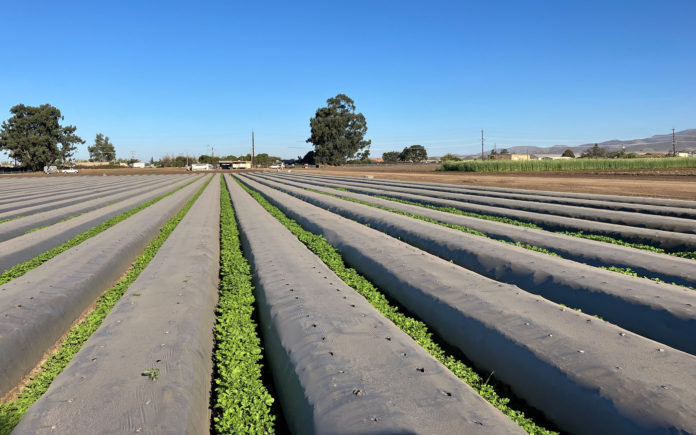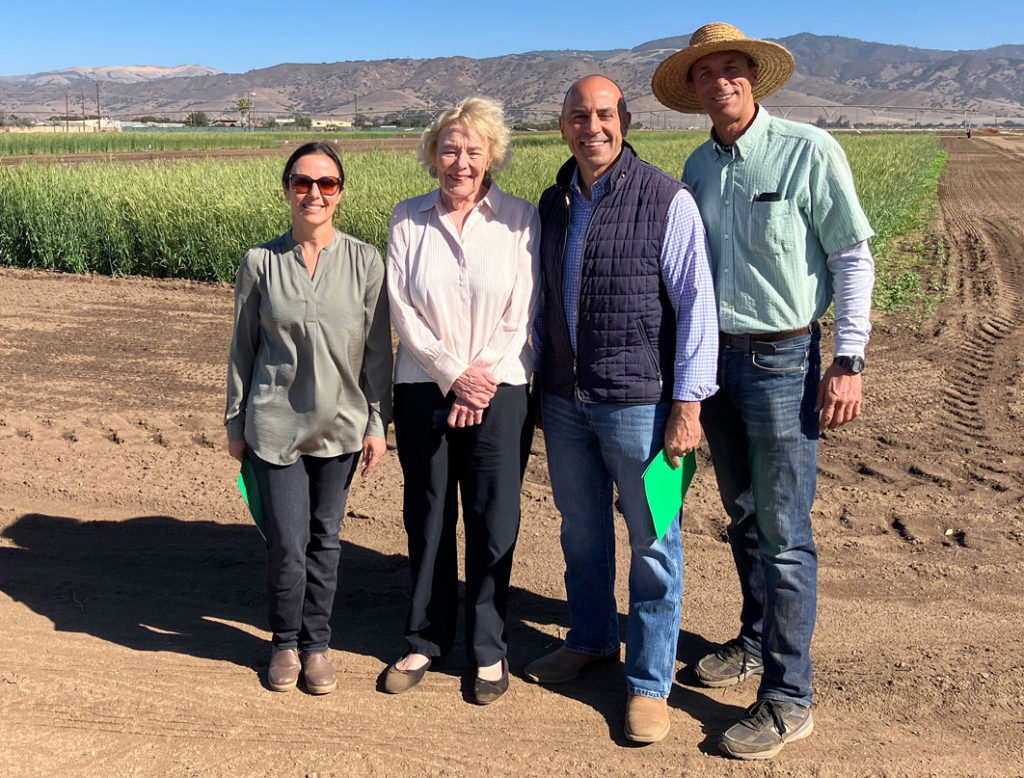
SALINAS — The Organic Farming Research Foundation (OFRF) hosted Reps. Zoe Lofgren and Jimmy Panetta and their staff alongside agricultural leaders and stakeholders for a field day visit to the USDA’s Agricultural Research Service (ARS) Salinas station.
The Oct. 21 visit highlighted the critical organic farming research led by Dr. Eric Brennan, emphasizing the need for increased funding to ensure the continuity and expansion of this impactful work.
Brennan’s research focuses on climate-smart and organic farming practices, particularly cover cropping and improved soil management. His efforts have provided practical, science-based solutions that boost farm resilience, reduce environmental impact, and enhance sustainability for both organic and conventional producers.
Despite the success of these projects, however, funding has remained stagnant since the mid-2000s, risking the loss of essential expertise and research advancements.

“OFRF commends Reps. Lofgren and Panetta for their active interest and support in championing organic agriculture,” stated the foundation. “Their leadership is vital to advancing organic research, which benefits farmers, consumers and the environment.”
In the greater Bay Area, from Monterey to Sonoma counties, more than 1,550 organic producers are generating nearly $1.4 billion in annual gross sales — underscoring the significance of organic agriculture as a significant economic driver in this region.
“The 18th Congressional District is home to a thriving agricultural industry, and thanks to the USDA’s Agricultural Research Service Salinas station, it is also a hub for cutting-edge organic ag research,” Lofgren said. “Scientists’ work to mitigate crop diseases and promote sustainable production practices will help protect farmers’ livelihoods and preserve America’s food supply in the long term.”
“Our farmers on the Central Coast rely on a robust R&D pipeline to share the bounty of our home with the rest of the world,” added Panetta. “The work of local researchers at the USDA’s Agricultural Research Station Salinas is helping to improve soil health, pest management and climate resilience for organic and conventional farms in California’s 19th Congressional District and across the country.”
Despite organic agriculture’s growing market share, less than 1% of ARS funding is allocated to organic research, which has limited innovation and support for organic producers. OFRF has advocated for more robust funding for these initiatives, emphasizing their broader benefits, including enhanced soil health, reduced pesticide use and improved economic and environmental resilience for farmers.

“Over 20 years ago, OFRF successfully advocated for Congress to create a research position at USDA’s Salinas station to focus specifically on organic farming,” said Brise Tencer, executive director of OFRF. “Dr. Brennan’s work has directly helped regional producers implement good soil health practices, advance climate-friendly agriculture, and dramatically increase the number of acres with cover crops in California. This is the type of research investment we want to see more of.”
Brennan’s research has led to improved soil health, higher crop yields and more sustainable pest and weed management practices, empowering farmers across the region to thrive in an increasingly competitive market. However, to maintain and expand this research, the project requires an additional $1.5 million annually, which would support hiring a second scientist and broaden the project’s scope to address emerging challenges in organic farming.
At the recent field day, attendees emphasized the critical role of ongoing research in advancing organic and sustainable farming, highlighting the need for more funding to support long-term projects. Key leaders from the agricultural sector participated, including representatives from the USDA, Wild Farm Alliance and local farming collaborators.
Discussions revealed several important insights:
- Resilience and Climate Adaptation: Research investments enhance resilience to climate change, offering localized solutions for organic farming;
- High Return on Investment: Each dollar spent on agricultural research yields a $20 return, benefiting rural economies; and
- National Demand for Organic Products: Continued research is vital to meet rising consumer demand for organic products and reduce reliance on imports.













